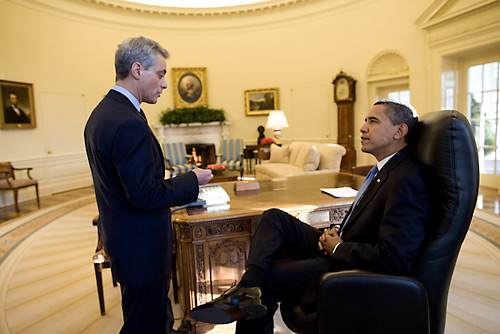“You never want a serious crisis to go to waste.” Those words, according to the latest article from Bruce Yandle in The Freeman, capture the essence of what could be considered Rahm’s Rule, after Chicago mayor and former White House chief of staff Rahm Emanuel. As Bruce explains, when it comes to crisis management, opportunistic politicians such an Emanuel never miss a chance to convert crises into political pork for special interests:
“Rahm’s Rule is a useful accessory to a body of theory that seeks to explain the political economy of regulation. The rule tells us that major crises can provide cover for distributing benefits to targeted special interest groups. The greater the magnitude of a given crisis and the shorter the interval for forming legislation to deal with it, the larger the spread of pork that can be packed into the final legislation. Rahm’s Rule is a guarantee that efforts to resolve a deadline-based crisis will go on to the very last minute.”
The rule serves as an important footnote to our understanding of regulation — a body of work to which Bruce has contributed immensely. Yandle’s 1983 Regulation article on “Bootleggers and Baptists” provided an explaination for the curious coalitions that succeed in extracting favorable regulations. He later summarized his theory this way:
“[D]urable social regulation evolves when it is demanded by both of two distinctly different groups. ‘Baptists’ point to the moral high ground and give vital and vocal endorsement of laudable public benefits promised by a desired regulation. Baptists flourish when their moral message forms a visible foundation for political action. ‘Bootleggers’ are much less visible but no less vital. Bootleggers, who expect to profit from the very regulatory restrictions desired by Baptists, grease the political machinery with some of their expected proceeds. They are simply in it for the money.”
Taken together, the Bootleggers and Baptist theory of regulation, along with Rahm’s Rule, go a long way to explaining the massive amount of regulatory favors doled out to special interests in legislation such as Dodd-Frank, TARP, and the fiscal cliff deal. In each case, Rahm’s Rule enabled Bootlegger-Baptist coalitions to eke out favors as the nation was distracted by political crises. As Bruce says, “We might keep this in mind for the next deadline-driven crisis.”
For more, read “Rahm’s Rule of Crisis Management: A Footnote to the Theory of Regulation” by Bruce Yandle in the The Freeman.



